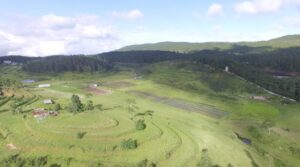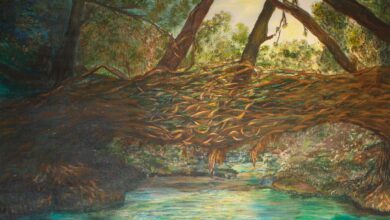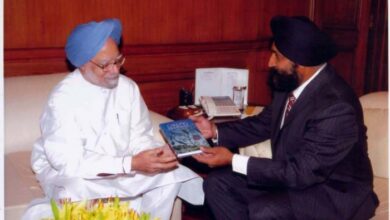A cash cow that state needs to care for
Animal Husbandry dept’s Indo-Danish project has been a success & key revenue earner

In 1974, a group of Danish researchers came to Shillong as part of a central project. They had with them 60 pregnant heifer cows and a few bulls and all the equipment required to grow fodder for the animals. The objective of the project was to create a pure breed of Holstein Friesian and Jersey cattle for the foundation stock of high genetic bulls for local farmers. Five decades on, the project has been a success story in the state.
Located in Upper Shillong, the cattle farm was initially spread over 127 acres of land. However, 42.5 acres were later given to the Indian Air Force. “We have 170 cows now and we need huge plots of land to grow their fodder as the animals are given only organic feed,” said Dr Amit KN Lamare, the deputy director of the Indo-Danish Project.
In fact, farming for fodder is done quite extensively as the ratio of land to animals has decreased over the years.

A regular day on the farm starts as early as 4.30 am when about 20 employees start their work, which includes cleaning the sheds and the animals, giving them food, milking the cows and tending to the farmland. The animals are given organically-grown maize plants and the best-quality grass. In winter, when the grassland dries up, the animals are fed with oat plants. Each adult animal feeds on about 35 kg of fodder each day.
“It is commendable how our workers take care of the animals and grow their fodder with dedication. They work till five in the evening with short intermittent breaks. They have a big contribution to the functioning of the farm. There are three tractors that are used for plowing, manuring and collecting the harvest,” said Lamare, who is also spearheading a pilot project at the Animal Husbandry and Veterinary unit.
Looking after the animals and providing them with medical care is a difficult job and two doctors have to be stationed at the farm for emergencies. “There can be a delivery case or sickness in the middle of the night and we need to be alert all the time,” said Dr N Marwein, who lives inside the farm.
Also, the doctors and workers there have to be careful about exposing the animals to the outside environment. Hence, visitors are strictly restricted near the animals.
About 80-90 calves are born each year and they have to be given special care.
Over the years, experts at the farm trained several local farmers from nearby localities, like Umlyngka and Mawklot, in dairy farming, helping them to set up dairy cooperatives in their respective localities.
Lamare said the farm is also a high revenue generator and earns about Rs 85 lakh per annum. Every day, about 650-700 litres of milk is produced, a part of which is sold outside. The demand for this milk, which has the best quality in the state, is high and numerous farmers and cooperative members flock to the farm every morning.
Recently, the Indo-Dan Multipurpose Hall inaugurated in the presence of Secretary Manjunatha C on the occasion of World Veterinary Day.
New technology
The AH and Veterinary farm has also introduced new technology for farmers to have broader options. It is implementing sex-sorted semen where farmers can choose the sex of the calves.
“The natural process is usually 50% male births and 50% female births. However, farmers prefer female calves as they can have milch cows. Bulls are used only for breeding. So, with this new technology, dairy farmers can determine the sex of the calves,” said Lamare.
The pilot project

The Animal Husbandry and Veterinary Department took up a pilot project keeping in mind the need for upgrading both milk and meat production in Meghalaya. Envisaged by Lamare and former departmental secretary GHP Raju, the project is divided into two phases, each spanning over three years.
“During these phases, we will study 11 parameters that will help us achieve the best result. So far, the results have been good,” said Lamare.
Under the new project, the department is using Ongole, a breed from Andhra Pradesh that has high-quality meat. Researchers got semen from the southern state and tried artificial insemination in about 150 local cows. As a result, 35 cross-bred calves have been born so far.
The research is in its second year as funding was delayed. But once implemented completely, the project will be a game changer for the state, believes Lamare. Meghalaya can not only bridge the gap in the demand and supply of beef but can also be a major exporter in the northeastern region as well as Bangladesh. This, in the long run, will help in checking cattle smuggling through the porous Indo-Bangladesh border.
Besides, this can help generate employment among youths as rearing the cross-breed is easy because of some unique characteristics of Ongole.
The Ongole, which is preferred globally for beef breeds, is hardy and disease-resistant. The cows can grow fast in a short period of time and can weigh up to 200 kg within a year. Though they are robust compared to the local breed, researchers found that foetal adaptability is 100% in case of cross-breeding as the Ongole variety has small birth weight.
The Ongole has the ability of reverse metabolism and can convert low-quality roughages into high-quality proteins through symbiosis by the action of omasal symbionts. Unlike the Friesian breed, this Andhra breed is not affected by bugs and leeches because of the sebaceous glands underneath the skin. All these characteristics make Ongole the best choice for rearing.
The farm is currently creating awareness among farmers on the detection of heat in the local breed so that the cows can be separated from the local bulls and prepared for artificial insemination. Farmers will also be trained to grow the best quality fodder because “not all grass is good for animals and it is important for cattle ranchers to know that”.
Lamare is leading the research and strongly feels that it will benefit the state in terms of revenue earning in the long run. “I want to complete the project during my tenure as I will be retiring soon,” said the deputy director, who holds the project close to his heart.
The Indo-Danish farm is doing a yeoman job for decades now and requires more support from the government. The state budget 2023-24 does not clearly mention the government’s allocations for the department. But it becomes important that it gives a fillip to the department, especially in the wake of the ongoing project, so that the success of this pilot endeavour helps in bettering the livelihood of the rural populace and boosts state revenue.
~ Team Sunday Monitor
Also read:
City to get its first govt animal rescue centre & shelter for strays




